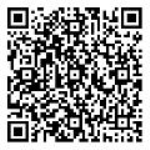期刊目錄列表 - 59卷(2014) - 【師大學報:語言與文學類】59(1) 三月刊(本期專題:禮制與庶民生活)
 Directory
Directory
劉勰少學方徑考―釋補劉勰生平研究的一個缺口
作者:葉常泓(國立臺灣大學中國文學研究所博士候選人)
卷期:59卷第1期
日期:2014年3月
頁碼:95-122
DOI:10.6210/JNTNULL.2014.59(1).05
摘要:
《文心雕龍》作者劉勰一生經歷入寺―登仕―出家三階段。就其入寺、出家後依止名僧,周覽寺院經藏,以及登仕後結遊文士,潛閱府閣秘籍,從而得以厚養學識、磋磨毫鋒,一般研究者多能明之。惟針對劉勰23、24歲入寺以前,究竟是透過自學、官學抑或家學哪一種方徑而奠立個人最早的學問基礎,今除牟世金嘗略及其「居家自學」之可能性外,其餘論者均懸而不究,積疑日久,遂成龍學研究或劉勰生平考證之一大缺口。本文旨在釋補此一懸案,考證劉勰少學之方徑,應非借力於文史家學淵源,且其就讀官學之緣會亦低,較可能的習業方式,或許確以居家自學為首。「少學方徑」之考對吾人理解劉勰完整的生平脈絡,是有一定必要的。
關鍵詞:少學、自學、官學、家學、劉勰
 《詳全文》
《詳全文》

Journal directory listing - Volume 59 (2014) - Journal of NTNU: Linguistics & Literature【59(1)】March (Special Issue: Confucian ethos: Etiquette & Vernacular life)
 Directory
Directory
Liu Xie’s Study Method in Early Life
Author: Chang-Hoong Yap (Department of Chinese Literature, National Taiwan University)
Vol.&No.:Vol. 59, No. 1
Date:March 2014
Pages:95-122
DOI:10.6210/JNTNULL.2014.59(1).05
Abstract:
Liu Xie, the author of Wenxin Diaolong, experienced 3 stages in his life. He was sheltered in a temple as an informal disciple of Buddhism before serving in the government. After accomplishing a mission that the empire assigned to compile sutras, he forsook the secular world and became a monk. Liu Xie took advantage of staying in the temple and court, reading numerous books and socializing with eminent literati and monks. Wenxin Diaolong and certain other works demonstrate that Liu Xie absorbed knowledge and expanded his viewpoint during these periods. However, confusion exists regarding Liu Xie’s study methods during the extensive period before his first engagement with the temple (23-24 years old). Liu Xie and his contemporaries could only study in official government schools, inherit scholarships from the prior generations of their clans, or to learn through ersonal effort. Mou Shijin suggested that Liu Xie might have formed the foundation of his knowledge through individual learning, but did not expand on this intuitional but tenable idea. Most subsequent researchers have avoided this topic, causing it to become an unsettled case in the study of Liu Xie. This study may fill in the blanks and support Mou Shijin’s speculation by providing supplementary evidence, particularly by excluding the possibilities that Liu Xie to enroll in official schools or depend on his family for education.
Keywords:study method in early life, individual study, official schools, family education, Liu Xie